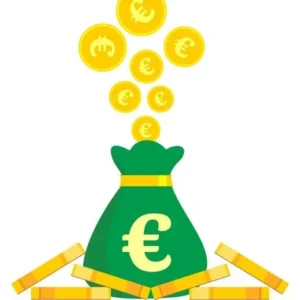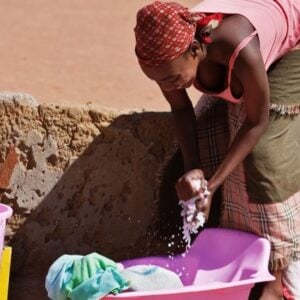Since 2014, the World Bank has supported Ethiopia’s One Water, Sanitation, and Hygiene National Program (OWNP), an integrated platform for sector development, through three major projects expected to benefit over 20 million people by 2027. The Ethiopia Water Supply, Sanitation, and Hygiene Project (2014–2021) provided improved water and sanitation services to over 10.9 million people, while the ongoing One WASH-Consolidated WASH Account (CWA) Project (2019–2027) is expected to benefit 8.6 million, and the Second Urban Water Supply and Sanitation Project (2017–2027) will provide access for an additional 3.8 million people. Technical assistance under these initiatives has strengthened sector governance and institutional capacity, contributing to the long-term sustainability of WASH services.
The program has addressed critical needs such as menstrual hygiene management in schools, which has improved the dignity and educational attendance of girls. Despite these achievements, Ethiopia faces the largest WASH access gap in Sub-Saharan Africa, with approximately 60 million people lacking basic water supply, 112 million without improved sanitation, and 22 million practicing open defecation as of 2025. Unsafe water, inadequate sanitation, and poor hygiene practices contribute to 60–80 percent of communicable diseases, highlighting the urgent need to expand infrastructure while ensuring sustainable service delivery.
The OWNP, launched in 2013, is a multi-phase, multi-sector program designed to achieve universal access to safely managed WASH services in both rural and urban areas. The program integrates rural and urban WASH, institutional WASH in schools and health facilities, drought hotspot interventions, and institutional strengthening. Led by the Ministry of Water and Energy in coordination with the Ministries of Finance, Health, and Education, the program emphasizes planning, financing, and management of WASH services while leveraging local governance structures.
The World Bank has also supported the Consolidated WASH Account (CWA), an innovative financing instrument enabling donors to pool resources to expand WASH infrastructure nationwide, including climate-resilient schemes. The first phase of the CWA was completed in 2021, and the second phase continues through January 2027, with contributions from eight development partners including the African Development Bank, UNICEF, and multiple bilateral programs. Beyond financial support, the platform fosters coordination, stakeholder collaboration, community ownership, and technical capacity development for local governments.
Between 2014 and 2021, the EWSSHP constructed or rehabilitated 17,500 community water points, 1.2 million improved latrines, and over 10,000 WASH facilities in schools and health centers. It provided access to improved water for 5.3 million people and improved sanitation for 5.6 million. Training and capacity-building initiatives reached over 2 million people, supporting hygiene practices, water scheme management, and sanitation marketing.
The ongoing One WASH-CWA and SUWSSP projects continue to expand coverage, benefiting millions more. The CWA has reached 7.5 million people with water and sanitation services, while 2,600 rural water schemes, 460,000 trained individuals, 228 sanitation marketing centers, and 1.5 million improved household latrines have been established. Schools and health facilities have received enhanced water supply and sanitation infrastructure, including 427 new menstrual hygiene management facilities. In urban areas, the SUWSSP has provided improved water and sanitation for 1.4 million people, including 40,000 new sewer connections and 65,000 piped water connections. Female representation in utility management positions has increased from 15 percent to 21 percent.
The World Bank has contributed significantly through IDA credits, totaling $1.23 billion across the three projects, while the CWA has mobilized $1.07 billion from multiple donors. These partnerships ensure effective alignment between government priorities and donor assistance, providing a harmonized approach to financing, implementation, and monitoring.
Looking ahead, Ethiopia continues to face substantial WASH access challenges due to population growth and climate vulnerabilities. The OWNP adopts a phased, results-based approach to achieve universal, sustainable, climate-resilient, and equitable access to safe water. The World Bank is also advancing groundwater management through the Horn of Africa Groundwater for Resilience Project, aiming to enhance water security, reduce forced displacement, and promote sustainable development in vulnerable communities.







